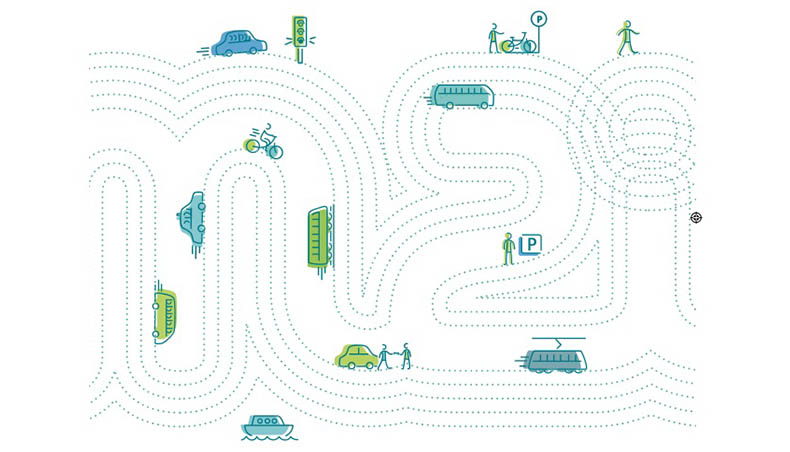
Saving time and money while taking the stress out of travel is a dream that is probably shared by all regular travelers in Paris. How can travelers make the best choices for their journey, combining personal means of travel with public transport? Which digital tools will provide the best level of service? Groupe Renault is contributing its expertise to the m2i project in order to develop fair and efficient mobility in the Paris area.
There are no universal means of travel today. So travelers in the Paris area tend to combine several means of travel for their personal or professional requirements: walking, bike, metro, bus, regional train, personal car, taxi, ride-hailing service. etc. Although the development of shared services is key to the future of mobility, it cannot be achieved without taking account of other means of transport.
This is the aim of the project m2i (“mobilité intégrée Ile-de-France” – integrated mobility for the Paris area), set up by IDF Mobilité and Transdev, in partnership with a range of private and academic partners, including Groupe Renault. The objective of the various players in this project is therefore to develop new tools encompassing the entire public and private mobility offering. In this way, they will contribute to smoother, easier travel in the Paris area and reinvent the user experience.
 Developing tools for all mobility players
Developing tools for all mobility players
The m2i project will need to reconcile individual traveling needs – primarily relating to speed and cost- – with issues of general interest such as ensuring that all areas are accessible, creating a smoother traffic flow by increasing the proportion of journeys made in shared vehicles, and controlling spending.
All mobility players are concerned by the digital solutions expected to emerge between now and 2020:
- The authorities, through a digital observatory that will make it possible to establish, assess and plan journeys.
- Mobility operators, through an advanced tool for the management of transport networks.
- Passengers, through a multimodal navigator that will submit a range of travel solutions based on real-time and predictive data.

Connected cars: a central focus for Groupe Renault
Groupe Renault’s presence as a partner in the mi2 project is natural, particularly as it is already working with Transdev. The two entities are trialing ride-hailing services with autonomous cars as in the case of the Rouen Normandy Autonomous Lab. In terms of car sharing and car-pooling, services such as Renault Mobility are currently being deployed. The aim is to meet the needs of private individuals and businesses as well as the public and local sector.
The role of Groupe Renault in the mi2 project is to co-define and develop the technical solutions that will enable connected cars to communicate with the app and the platform that will be used by both the users and operators of future mobility services. In particular, this will provide the real-time data necessary to improve the results made available to users. Cooperation with other connected ecosystems will pave the way for new possibilities in terms of services.
At the same time Groupe Renault will be able to use this experience to develop the technical and commercial aspects of its own future services, based on robo-vehicle ride hailing. As we have already said, the aim of Groupe Renault is to launch services of this type – in cooperation with the Alliance – by the end of its strategic plan Drive The Future 2017-2022.
